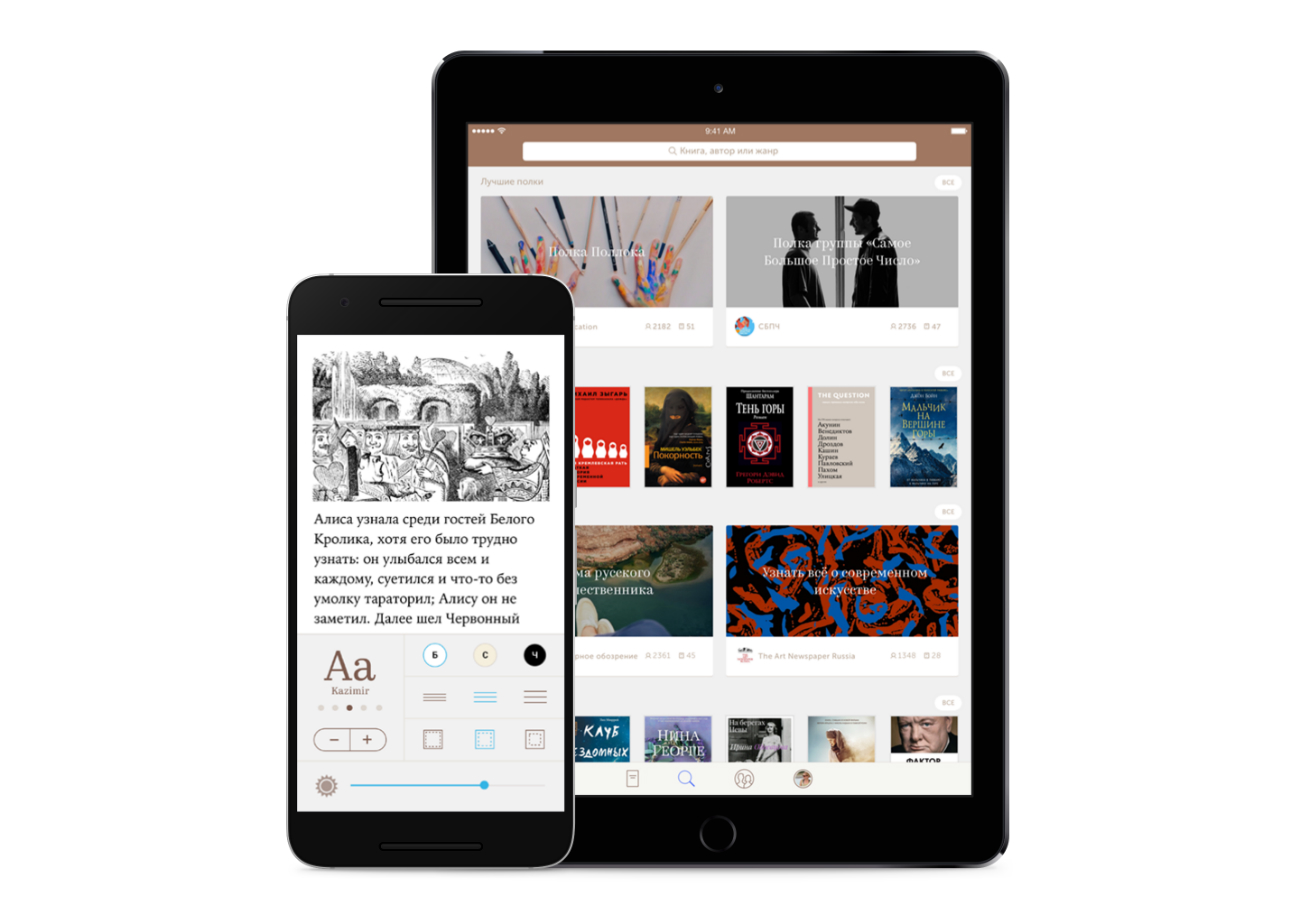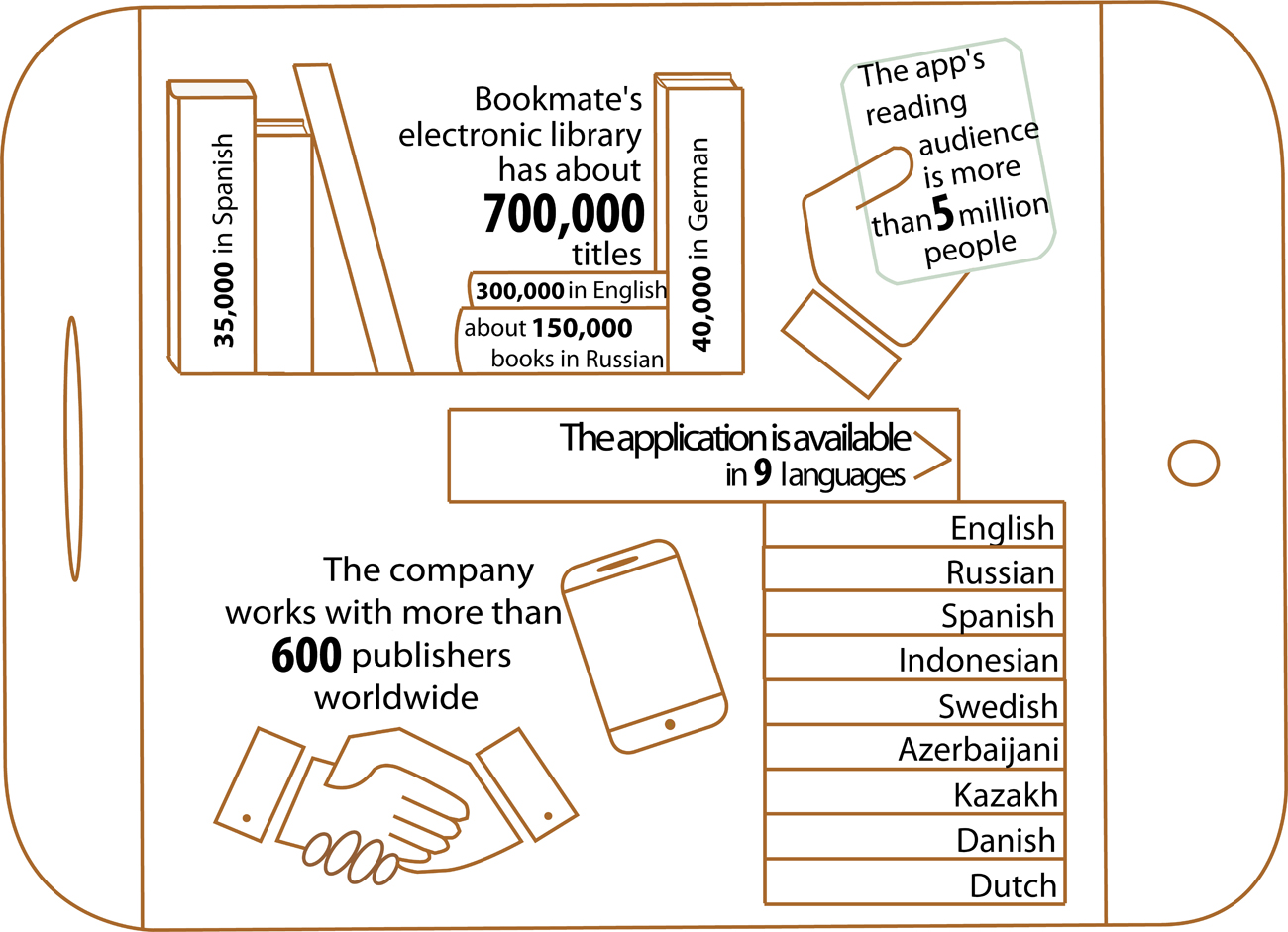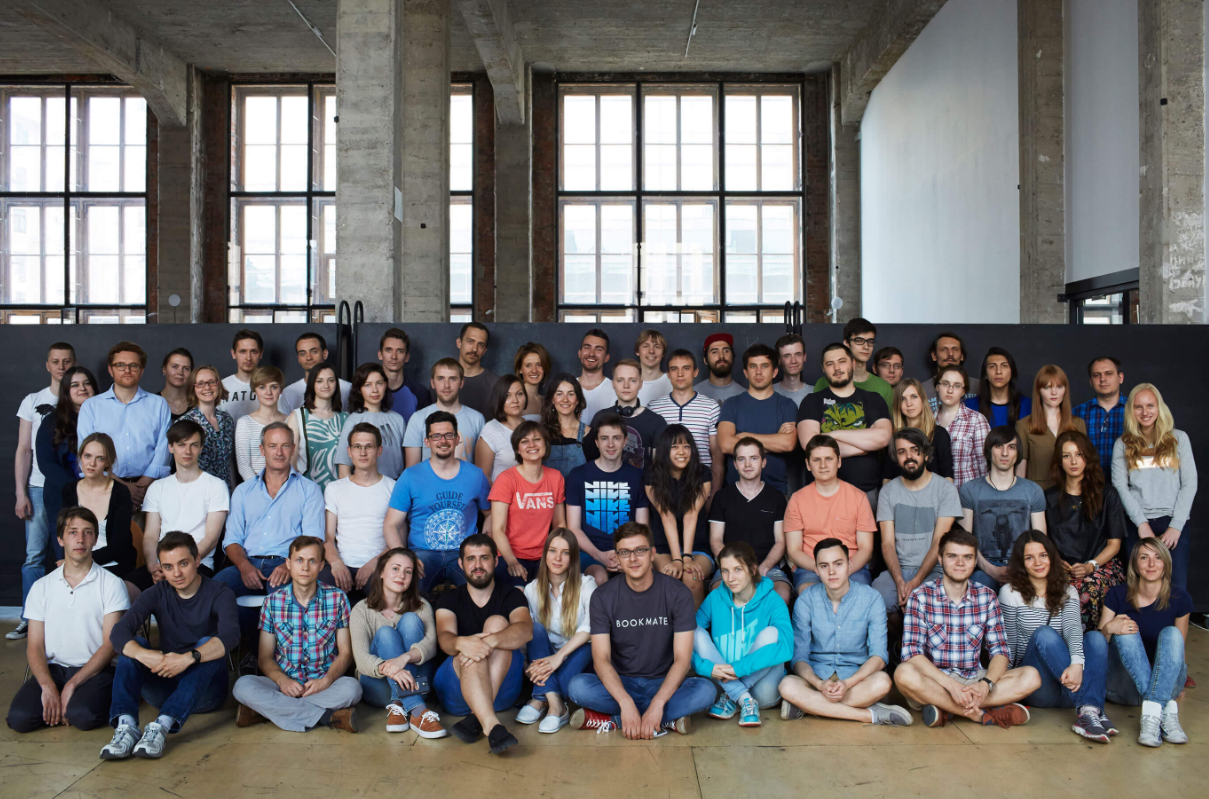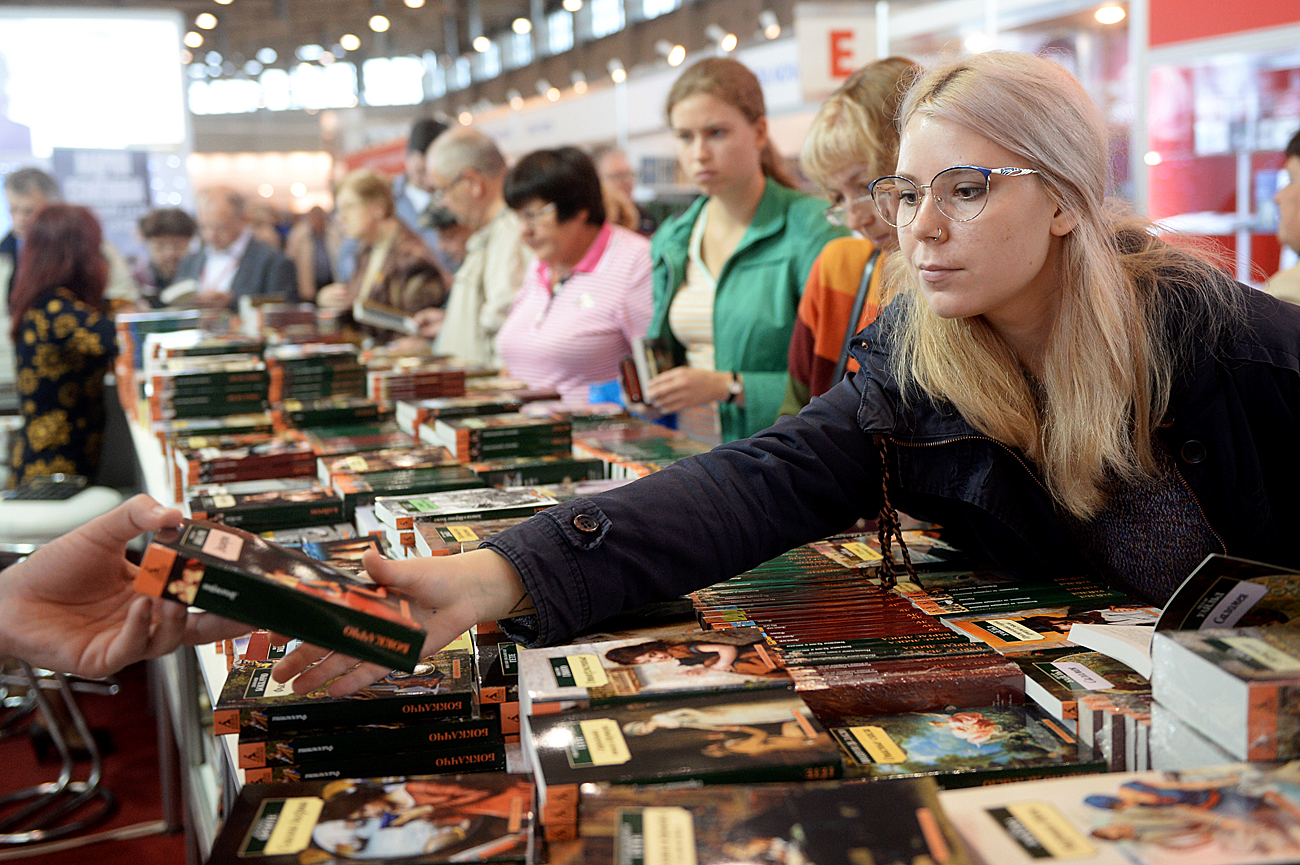Bookmate: E-book reader app from Russia takes on international markets

Bookmate has about 300,000 English titles in its library .
Press PhotoRBTH: How many books are in Bookmate's electronic library?
Andrei Bayev: Now, somewhere around 700,000.
RBTH: Impressive! In which countries do you have the most users?
A.B.: Well, that's not fair to say [laughs], because in some places we have just started, while we have been in other markets for a long time. But the top three are Russia, Indonesia and America. We are well read in Kazakhstan and Azerbaijan. We have a loyal audience in Ukraine. The CIS and Latin America are growing nicely.
 Source: RBTH
Source: RBTH
RBTH: How did Bookmate start?
A.B.: We started six years ago with one simple idea: to make a comfortable e-reader. At that time, the market for electronic books in Russia was zero. We did not have any monetization business model for the first three years. But then we realized that there are enthusiasts who are taking books, run them through a scanner, make PDFs and post them on the internet. So, we went to the publishers and began to work with them from that moment.
RBTH: Your service is aimed at those who love to read. But don't real literature fans prefer a print version of books?
A.B.: It is, in fact, a big misconception that e-books are killing print. We see the reverse situation. Users first read an e-book, and if they like it, if they have finished it, it is cool for them to put it on their bookshelf.
RBTH: When and why did you decide to go abroad?
A.B.: When we realized that the application works, we started to think what to do next. We introduced a subscription model for books.
 Andrei Baeyv, Bookmate's Managing Director. Source: Press Photo Andrei Baeyv, Bookmate's Managing Director. Source: Press Photo |
Then we began to notice that people liked it and that our profits were growing fast. The next task was to figure out how to make a Russian company that will be able to operate successfully in several markets, from Bolivia to the Philippines.
We started with Singapore. Because, on the one hand, we had many books in English, and everyone in Singapore reads in English. Secondly, we wanted to work in Southeast Asia for one simple reason: the markets in Indonesia and Russia have a lot in common. Furthermore, we realized it would be good to start in Singapore because everyone knows that if you are successful in Singapore, all the neighboring countries will want you, too.
And the plan paid off. Once we launched in Singapore, we began talks with Indonesia just three months later. Now we are negotiating with the Philippines, next will be Malaysia and Vietnam.
RBTH: How does the Bookmate application work? Is it a social network, or something else?
A.B.: Ninety-five percent of people do not know what to read. They want to read something, but do not know what. Therefore, our task was to think about how to help people find what to read.
For this, we are developing a whole new sphere associated with all sorts of recommendations. We recommend a book to you based on what you have read, you can recommend a book to a friend, to a group of people, the group can recommend a book to you, you can check out the "bookshelf" at Starbucks or the [Moscow] Higher School of Economy. The second task was connected to the fact that this is on a mobile phone, people are used to doing specific things on their phone. For example, to like and post, you use emoji and make comments. So, we decided to bring interactivity to reading.This is a level above the reading process. But reading is certainly most important. And our primary goal is to make people read more.
RBTH: What are the specifics for working with books in different countries?
A.B.: They say that Russia is the nation that reads the most. But this is not exactly true; in Indonesia, for example, they also read a lot.
There are many nuances. In Indonesia, people do not use credit cards, they pay for everything by mobile phone. Therefore, we needed integration with a mobile operator.
 Team Bookmate. Source: Press Photo
Team Bookmate. Source: Press Photo
In Russia, an interesting feature is that the publishers believe that a subscription service is an important distribution channel. There is almost no gap between releasing the e-book and the print edition, it's only about two weeks.
RBTH: Why are Russian publishers so understanding?
A.B.: It's simple: piracy. In Russia, if you hold back the release for even six months, everyone will just read it for free. I must say, the problem of piracy is the same everywhere. If someone thinks that people use torrents less in Italy, Denmark and America, it's not true.
RBTH: What genres do readers prefer in different countries?
A.B.: In Latin America, they generally do not read serious books, they prefer romance novels and light reading. In Russia, they read fiction and serious novels, but the most popular, of course, is Leo Tolstoy. School students read him with pleasure and free of charge.
Plus, just this year, a super-big trend is books on self-development. They are almost one-third of all material that is read in Russia. In Indonesia, they read novels.
RBTH: Where will you go next?
A.B.: We will continue to develop Southeast Asia, the Philippines, Malaysia, Vietnam. We are looking towards India, but it is a very large and complicated market, with many different languages. Then there is Europe: Sweden, Denmark and Holland. We have high expectations for Holland. We will try to win the market quickly, before others arrive.
Exclusively for RBTH readers this Bookmate promocode: To start reading, enter 'rbthbookmate' here bookmate.com/code and don't forget to follow the RBTH bookshelf.
All rights reserved by Rossiyskaya Gazeta.
Subscribe
to our newsletter!
Get the week's best stories straight to your inbox

